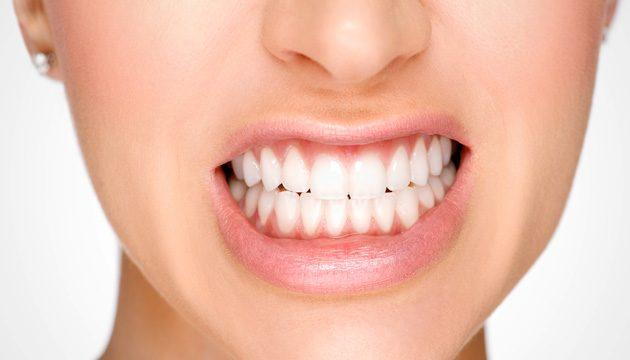The Nightly Grind
posted: Jan. 29, 2019.

There’s nothing sweeter than a sleeping child. The peaceful look of contentment, the gentle breathing, a small smile as they enjoy a happy dream – it all seems perfect. Until you hear it. A loud grinding and gnashing noise that comes from their small mouth? What is that? And is it as bad as it sounds?
Bruxism - What Is It?
Bruxism is the medical term for grinding, gnashing, or clenching your teeth. For children, it’s more common for these behaviors to be displayed during sleep, rather than while they are awake. Sleep Bruxism is actually considered a sleep-related movement disorder. The disorder is also called nocturnal bruxism, nocturnal tooth-grinding, and nocturnal tooth-clenching.
While bruxism in children is fairly common, the exact cause of sleep bruxism is unknown. It has been linked to improperly aligned teeth or irregular contact between upper and lower teeth, stress, anxiety, a response to pain, such as an earache or teething, and other medical conditions.
Because most children display these behaviors only when sleeping, it’s nearly impossible for them to know that they do it. You will need to observe your child while he or she sleeps. Symptoms that your child is suffering from sleep bruxism include:
- Abnormal wear of the teeth
- Sounds associated with bruxism (Think loud chomping and grinding noises in their mouth!)
- Jaw muscle discomfort
- Complaining of headaches
- Tooth sensitivity
Impact of Bruxism on Child’s Health:
Most children will outgrow bruxism, and sometimes, it may go totally undetected. However, even if they don’t complain of jaw pain or other symptoms, bruxism can still have negative effects on your child’s teeth and general health. The grinding and gnashing can cause headaches and earaches. Over time, it can also wear down the tooth enamel, chip teeth and cause temperature sensitivity. Children that exhibit more severe bruxism may even have TMJ problems.
What Can You Do?
While there may not be a lot you can do to stop your child from clenching or grinding in their sleep, there are ways you can help lessen the frequency and intensity of incidences. If stress or anxiety is the cause of bruxism, encourage your child to relax before bedtime with warm baths, soothing music, relaxing books, and stories. Try to identify the areas causing stress and anxiety and help your child through it.
If you think your child is grinding his or her teeth, schedule a visit with your Anderson, SC pediatric dentist, who will examine the teeth for chipped enamel and unusual wear and tear. They may spray air and water on the teeth to check for unusual sensitivity. In severe cases, your pediatric dentist may recommend a nighttime mouth guard for your child to wear while he or she sleeps. Since most children won’t be excited to keep this in their mouth, it’s not likely that your kid's dentist would recommend this for very young children. For young children, relieving stress and anxiety, encouraging relaxation at bedtime, and monitoring damage are the best options. Eliminating afternoon caffeine and turning electronics off two hours before bedtime may also help them sleep better.
If you are looking for a dental home for your child, Anderson Pediatric Dentistry would love to be your trusted partner in your child’s oral health. Call us today at 864-760-1440 and let us give you Something to Smile About!
